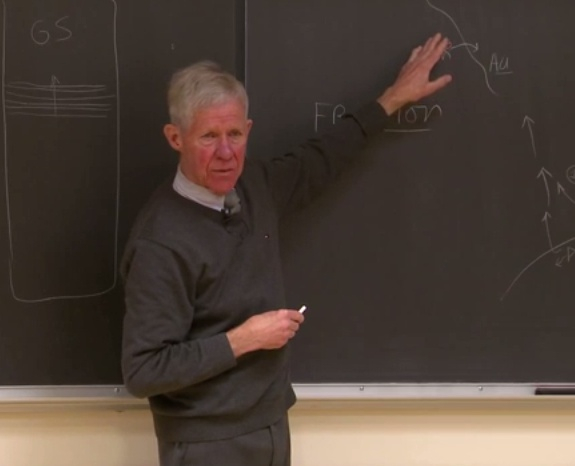The Yale University professor and diplomatic legend Charles Hill died on Saturday at the age of 84.
I met Hill in a freshmen literature course in the spring of 2003 and, like so many of his students, kept up a regular email and phone correspondence with him until his death.
A former aide to Henry Kissinger and George Shultz, Hill launched a second career in academia in the mid-1990s. He was thoroughly unmodern: He didn't seek the approval of his students, he certainly wasn't afraid of them, and he cared enough about them to try to turn them from coddled teenagers into successful adults.
He had a quality he once described to me—not in a personal context—as "command presence," something he said they teach at the military academies. It's a combination of dress, bearing, and self-possession that instantly projects authority.
I can still recite from memory his comments on the first paper I wrote for him. It was, in his view, more an "extended meditation on the subject"—Don Quixote—than a "sharp and logical" analysis of the text. Ouch.
But my academic recollections are secondary to the truth bombs I saw him dispense in and out of class.
In that freshmen literature seminar, one student was tasked with kicking off class with a brief synopsis of the significant aspects of the assigned reading. The first in the rotation was about three minutes into her remarks when Hill cut her off to note that he'd asked for a short encapsulation, not a plodding plot summary. Follow directions.
The standout student in that class was a woman whose first language was French, and I heard through the nerd gossip mill that Hill had taken her aside to tell her she was doing herself a disservice by not getting a better handle on the English language. Ideas are worthless if you can't communicate them effectively.
Two years later, in the Grand Strategies course he helped to found, I watched nervously as Hill brutalized a group of my classmates. They'd obviously put a great deal of effort into their presentation because they'd mastered the subject in tedious detail. He congratulated them on giving "the worst presentation in the history of the Grand Strategies program." Class dismissed.
It wasn't the worst presentation in the program's history. It wasn't even the worst of those delivered that year. But assessments can be arbitrary, and life isn't fair, and you have to pick yourself up and move on. In those presentations, as in life, I also watched as points were granted for humor, charm, feistiness, and being quick on one's feet.
He reveled in giving unconventional, counterintuitive, and politically incorrect advice on absolutely anything. When I was preparing for an interview at the Pentagon shortly after my graduation, he advised me to wear a skirt suit, tone down my jewelry, and cut my hair.
He was adamant about his preference for undergraduate students over graduate students. The CIA was a better institution, he insisted, when it recruited undergraduates. He refused to write me a recommendation for law school because he thought too many Yale students, lacking professional creativity, used it as a default. Whether they go dig ditches in India or run a non-profit, he would carp, they all end up at Harvard Law School.
At an annual talk to one of Yale's secret societies on the subject of marriage, he told students in his oracular manner that, while most married people are unhappy, one can't be happy unless one is married.
It was the understanding that Hill knew something about life outside the classroom that led me to call him in tears years after I graduated at a moment of real personal and professional crisis. We all go through a couple of tremendously hard times in our lives, he told me. He'd been through two real lows of his own. You'll be fine, because you are strong and resilient.
I hadn't actually conceived of myself as strong or resilient before that conversation, but I have since. It's an understanding that's brought me serenity when times are tough and buoyed my confidence to take risks when life is good.
Hill was hardly a household name, but that too was part of his greatness. He didn't seek fame or renown, and he was a living testament to the fact that it's possible to play an important role in big historical events without being a peacock or a showboat or a Twitter warrior.
That he is a part of a dying breed on our college campuses is the country's loss. RIP.
